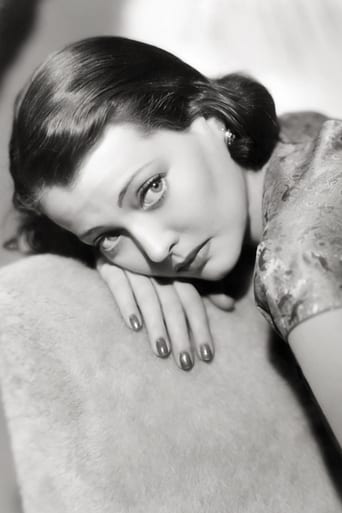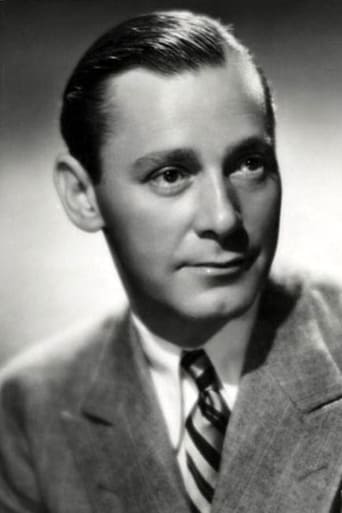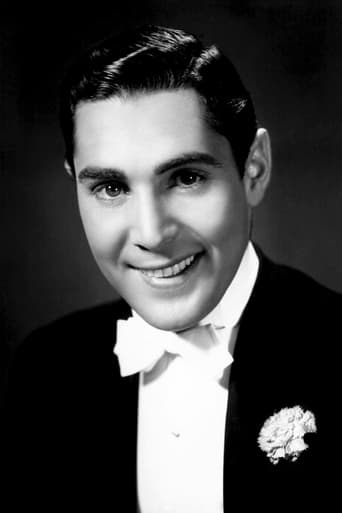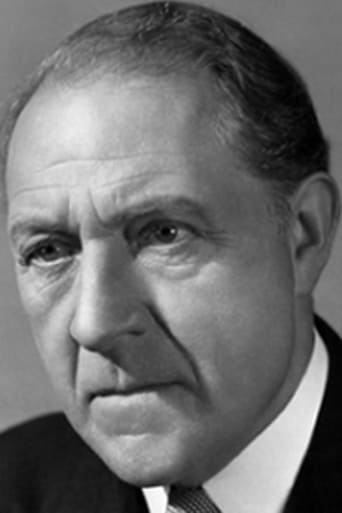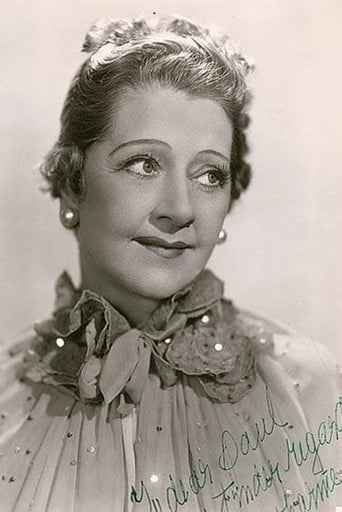Scanialara
You won't be disappointed!
BroadcastChic
Excellent, a Must See
Bergorks
If you like to be scared, if you like to laugh, and if you like to learn a thing or two at the movies, this absolutely cannot be missed.
Lidia Draper
Great example of an old-fashioned, pure-at-heart escapist event movie that doesn't pretend to be anything that it's not and has boat loads of fun being its own ludicrous self.
winstonchurchill-93755
Herbert Marshsal could carry a script and Sylvia Sidney could stop a train with her eyes. Well written and well acted.
MartinHafer
Steven Gaye (Herbert Marshall) is a famous playwright who has just written a play about a May-December romance. However, as he works on the story, real life begins to intrude as the actress starring as the young lady in love with the older man, Linda (Sylvia Sidney), begins to actually fall in love with Steve. But Steve is a practical man and sees little future in this and encourages a young beau to pursue her as well. Sadly, when Steve and Linda get what they want, they don't seem to want it any more. What exactly does this mean? See the film.This is a mildly enjoyable old film that surprised me. The ending seems pretty much in line with Pre-Code sensibilities...so imagine my surprise when it turns out to be a Production Code movie...coming out the year following the implementation of the tough Production Code. Worth seeing and quite interesting, mostly because Marshall is great in most anything.
kevin olzak
1935's "Accent on Youth" was the first film adaptation of Samuel Raphaelson's 1934 Broadway play, the story of a wealthy 50 year old playwright, Steven Gaye (Herbert Marshall), whose latest offering, intended as a tragedy following 19 straight comedies, depicts a romance between a young woman and an older man. Yet for the previous three years, he has never noticed that his loyal young secretary, Linda Brown (Sylvia Sidney), has been in love with him. Life imitates art when Linda decides to marry her co-star in the play (Phillip Reed), much like her character does, but soon regrets the whirlwind decision. Rarely does the film leave Herbert Marshall's home, a static presentation that the cast tries hard to overcome. Among the smaller roles are Dick Foran and Lon Chaney, as Butch and Chuck, buddies of the young groom, who really only figure in the denouement. Foran was still billed as 'Nick Foran,' while this was one of the first films for Creighton Chaney's new moniker, 'Lon Chaney Jr.' Later versions include Bing Crosby in 1950's "Mr. Music" and Clark Gable in 1959's "But Not for Me."
ecaulfield
Playwright Steven Gaye (Herbert Marshall) puts great emphasis on youth. You see, there is something "grand" about being young, so grand that all youth deserve to experience young love. Thus, he spends the whole of the film debating with himself about the propriety, apparent unseemliness, and selfishness of a fifty-year-old man falling in love with a woman in her twenties. But Linda (Sylvia Sidney) enlightens him. What if woman chases man rather than man chasing woman? In that case, a May-December affair is okay, at least for a play. You'll see that in his personal life, Steven feels differently and thus tries to spare Linda the mistake of latching onto him when she is "so darn young." Thus, we get the obligatory improbable romance between Linda and a young man who really isn't much to her (or probably any woman's) liking. Although it's 1935, Linda isn't forced to remain with this overbearing man to prove she is good. Happily, the writers knew irreconcilable differences when they saw them and thought, perhaps an unorthodox pairing really is best for some! The film is aided by consistent touches which show that it does not take itself too seriously: Ernest Cossart as the butler is every bit as much Marshall's friend as his servant. Strictly speaking, he remains very proper ("very good sir"), but his familiarity with his master and his decidedly knowing character make his conduct seem almost as if he is mocking propriety itself. Another help is Marshall's ability to effortlessly play the sophisticate, a man who never says anything wrong and who you are likely to find wearing a bow tie, even under his robe. This is a slice of the upper crust, but here, etiquette is matched by personality.
